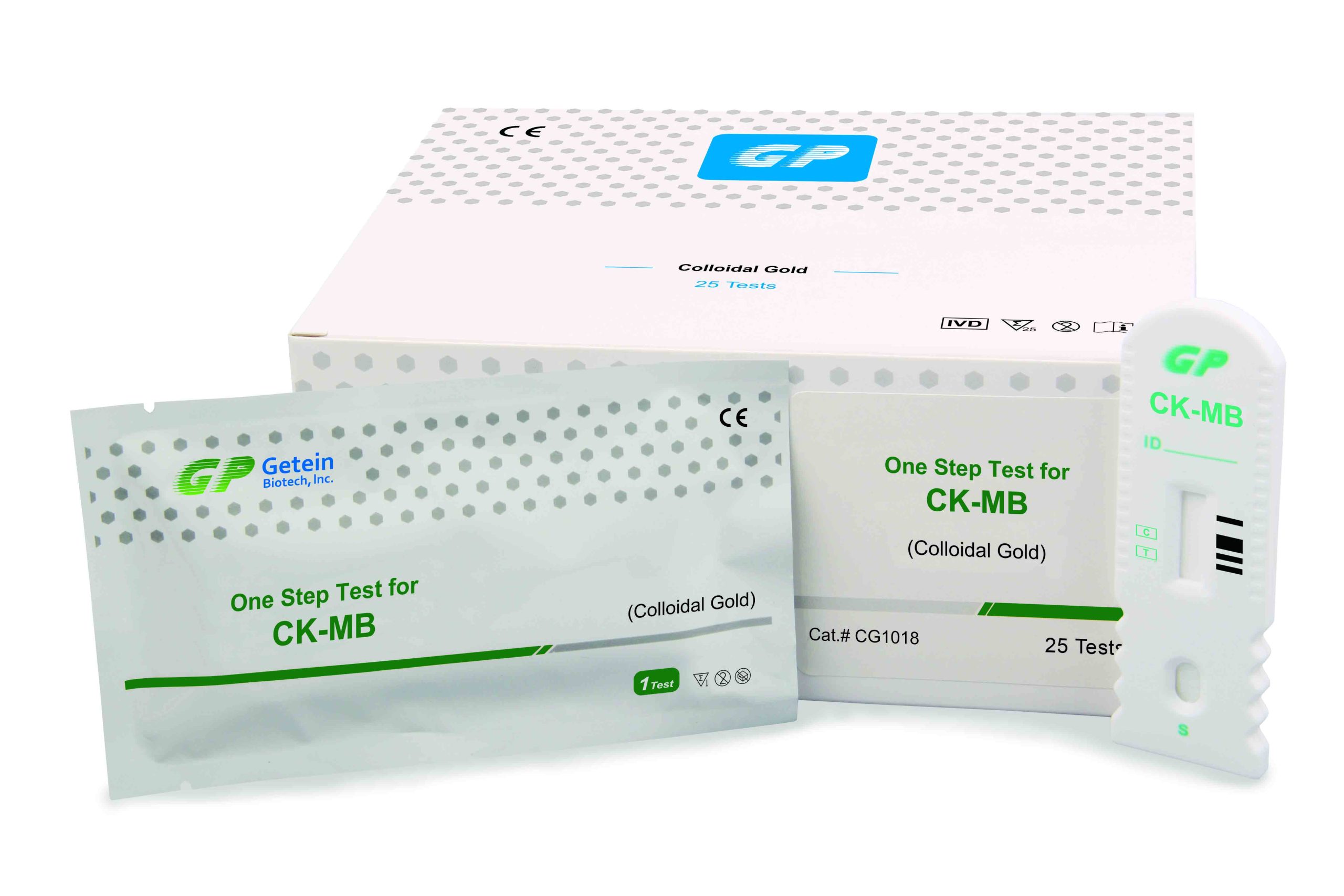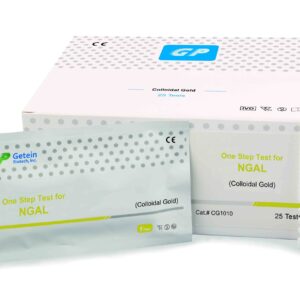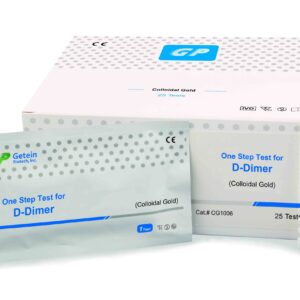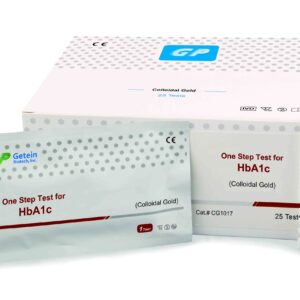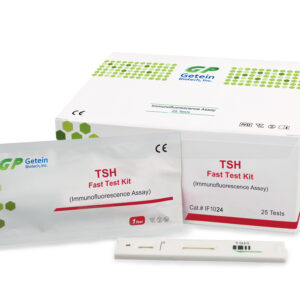Description
Creatine kinases are dimer isozymes composed of two monomer subunits, CK-M (for skeletal muscle derived and CK-B (for brain derived), which can form all three combinations of monomers: CK-BB, CK-MM, and CK-MB. BB is found primarily in the brain. Skeletal muscles primarily contain the MM isoform, with trace amount of MB (around 1-4% of total CK activity). Cardiac muscles also contain the MM isoform, but higher amount of MB, typically around 20% of total CK activity.
CK-MB is a more sensitive marker of myocardial injury than total CK activity, because it has a lower basal level and a much narrower normal range. Medical literatures commonly state that CK-MB levels are elevated in 4 to 6 hours, peak at 10 to 24 hours, and return to normal within 3 to 4 days after an acute myocardial infarction. Classically, an increase of the myocardial-specific enzyme CK-MB is considered as the hallmark of acute myocardial infarction, and increased levels are frequently interpreted by the clinician as objective evidence of myocardial cell damage.

